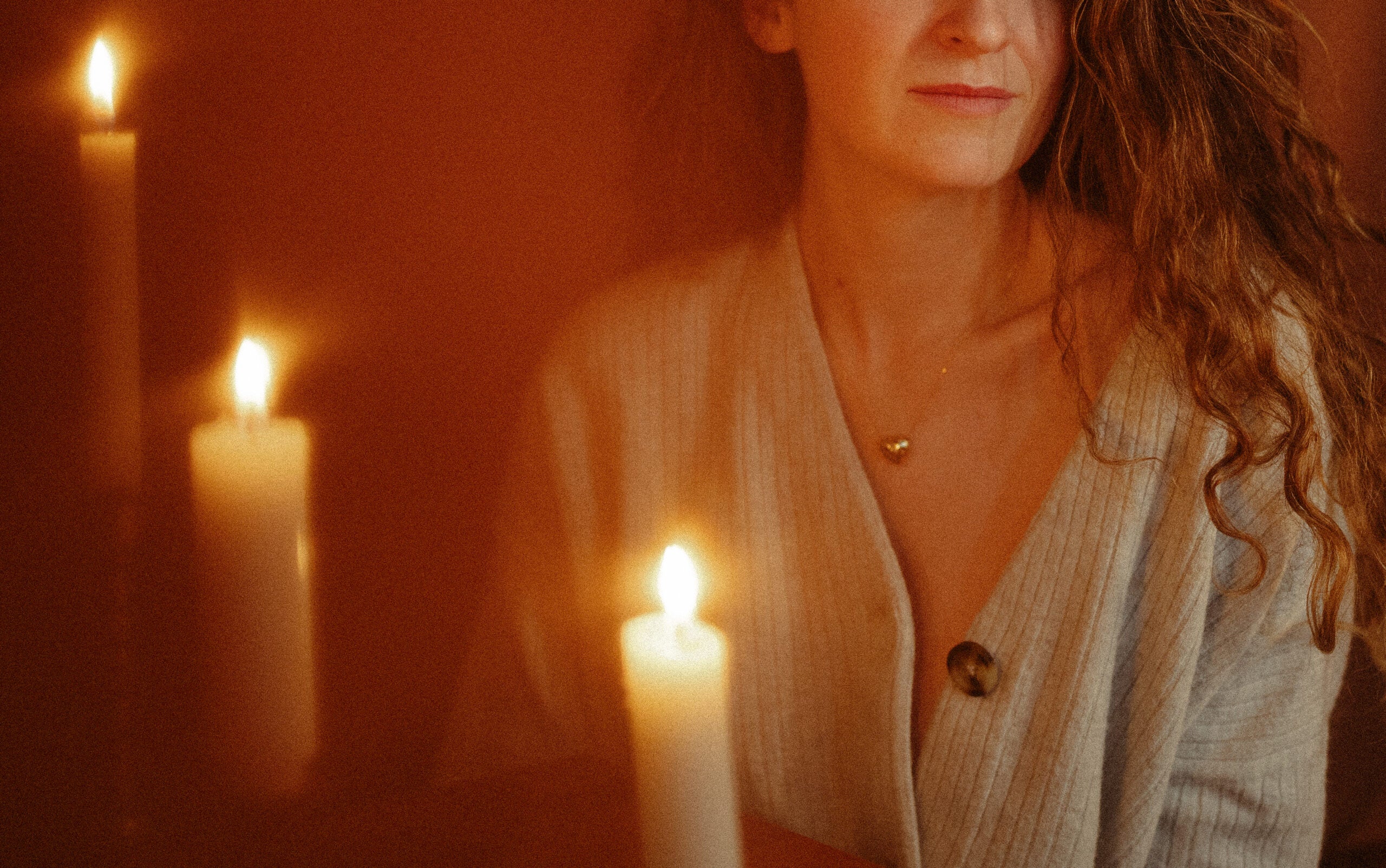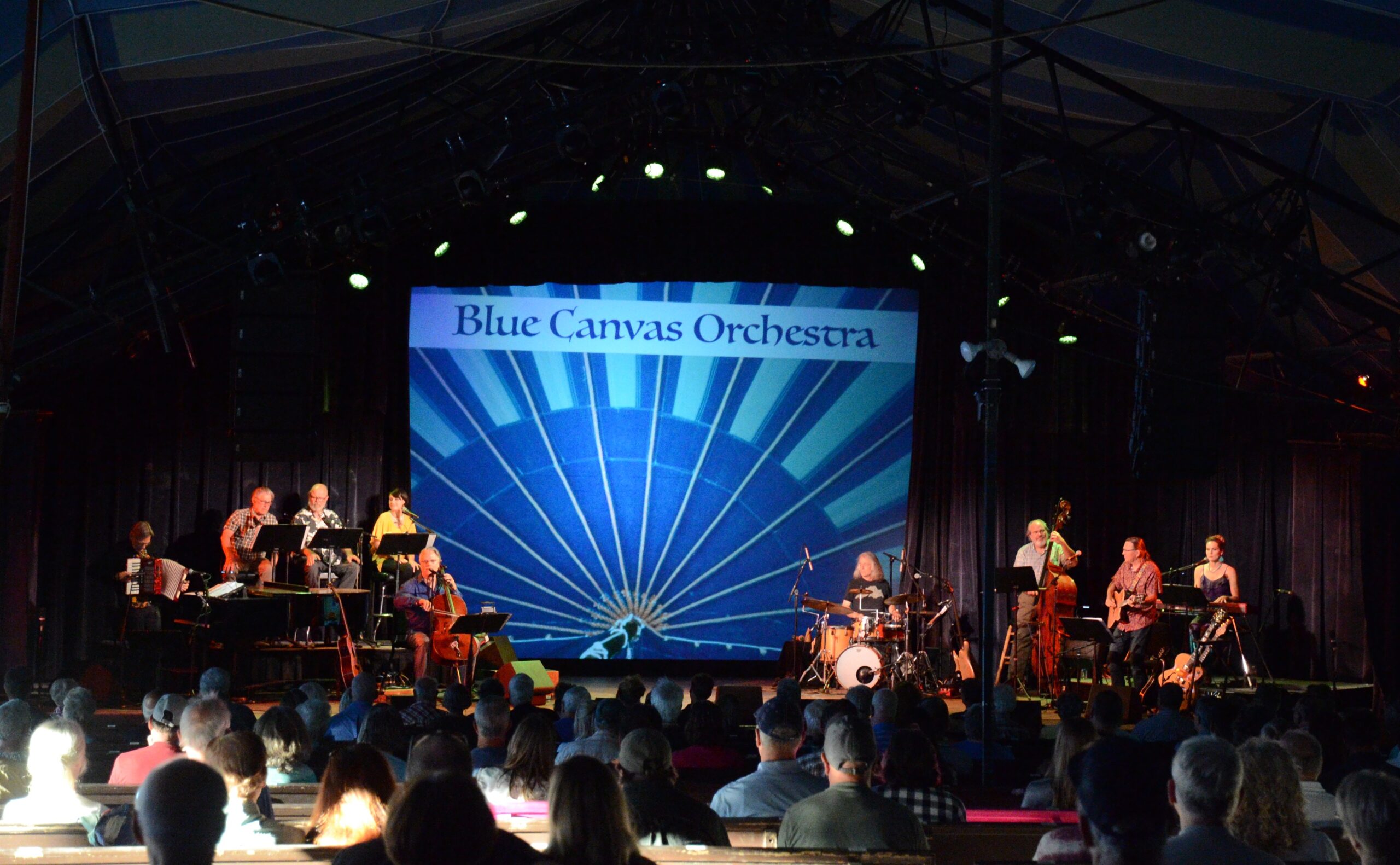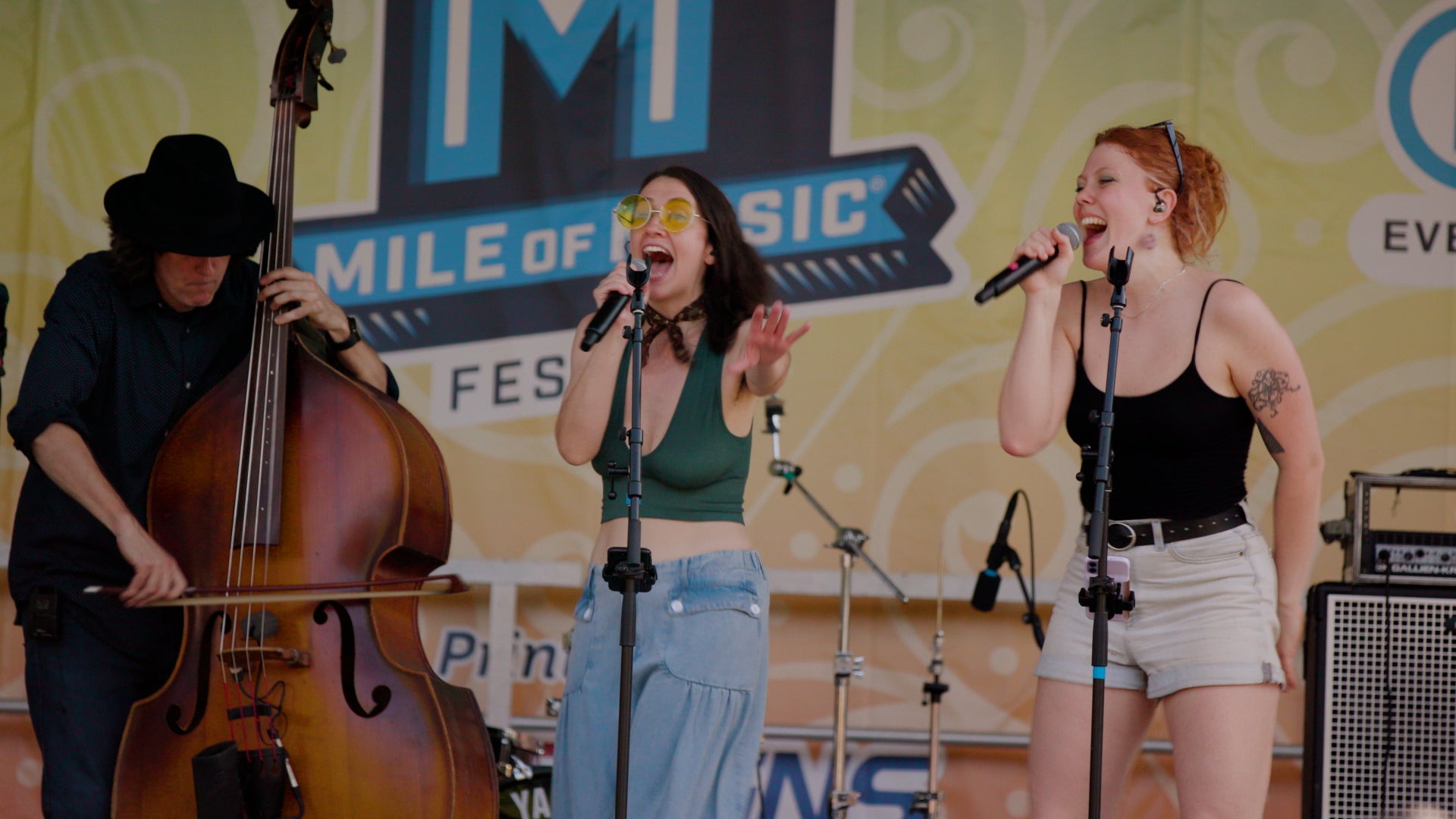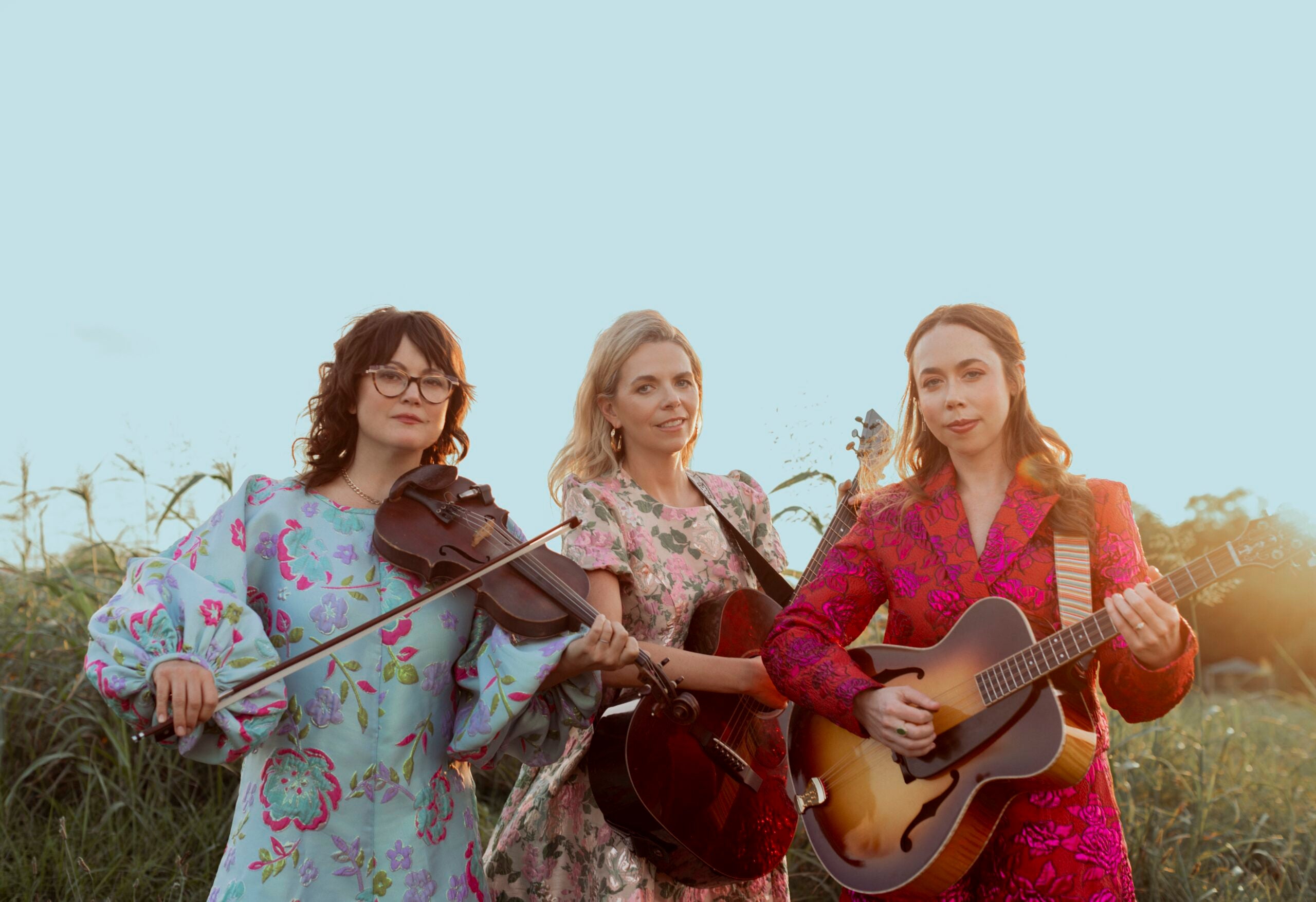When it came time for Erin Rae and the Meanwhiles to start recording their second album earlier this spring, the band could have picked any number of studios in their hometown of Nashville. Instead, they decamped from “Music City USA” for Appleton, Wisconsin, where they laid down tracks amid microphones, piles of cables and empty guitar cases in an old monastery along the Fox River.
And they’re not the only ones.
Musicians from France, New York and California, as well as across Wisconsin, are making their way to the Refuge. A former retreat for members of the Capuchin Franciscan Province of St. Joseph Order, the space is turning into a getaway for all sorts of artists. They may come for a weekend or stay for a few weeks, inhabiting the tiny bedrooms that once housed monks.
News with a little more humanity
WPR’s “Wisconsin Today” newsletter keeps you connected to the state you love without feeling overwhelmed. No paywall. No agenda. No corporate filter.
The mission is to give musicians or painters the peace and space they need to create.
“This is really the treasure,” said Refuge co-founder and Grammy-nominated musician Cory Chisel, looking around the building’s chapel, a replica of a St. Francis of Assisi chapel in Italy. “Usually, people spend time in this space either reflecting or writing or for vocal and acoustic instruments, it becomes our shining jewel.”
The chapel, with its high ceilings, dark beams, and massive windows, doubles as a concert venue for the community and a second recording studio.
“I really love natural-sounding recordings,” said Chisel. “I’ve made a lot of very sterile-sounding recordings where they literally soundproof everything. But the reality is as human beings, we don’t exist in that space. We live in a natural world. If a couple songbirds bleed into the mix of a song, I’m completely ok with that sort of collaboration.”
Once a monastery for the Capuchin Franciscan Province of St. Joseph, the Refuge sits along the Fox River in Appleton. Maureen McCollum/WPR
Something New In An Old hometown
This idea of getting away from certain aspects of the music industry is part of the reason Chisel returned to his hometown of Appleton and led him to co-found the Refuge.
For years, Chisel was living the life many musicians dream of. He was signed to a label and living in Nashville. He and his band, the Wandering Sons, toured the world with the likes of Norah Jones. He was playing music with people he cared about.
But something was missing. Chisel’s focus was on creating hit records. He felt uninspired.
Refuge co-founder Adriel Denae also felt lost. She’s Chisel’s musical collaborator and partner.
“After a decade and a half in the more traditional music industry and environment, it had grown so depleting to me,” Denae recalled. “It’s like you’re searching and lunging and leaping towards these things you’re not even quite sure you want or whether they’re going to be satisfying in any sort of soulful way. You’re just doing them because it’s how it goes and what you’re supposed to do.”
What followed was a series of serendipitous events. Denae and Chisel were traveling to Appleton more often for the Mile of Music, an annual Americana festival that Chisel helped found. Meanwhile, the former monastery was being run by an environmental group and they needed someone to take the reins. Then, Denae and Chisel became first-time parents.
So, the couple took a risk. They moved into the monastery.
“It definitely, initially, got a lot of people’s attention to be like, ‘Either they’ve lost their mind or they’ve really found a home,’” said Chisel. “Every friend that comes to visit, winds up coming back for a project.”
A Wealth Of Knowledge
Chisel and Denae created the Refuge as a nonprofit to give musicians a space to create and they’ve tapped into their industry connections for guidance. The Refuge’s curation board is made up of nationally known musicians, like Rosanne Cash, Patrick Carney of the Black Keys, and the Smashing Pumpkins’ Jimmy Chamberlin.
Chisel said dozens of musicians have recorded at the Refuge over the last couple years. Each of them is in different phase of their career, from the beginning stages to the pinnacle of success.
Take Jon Wheelock of the band, J-Council. He’s a regular around the Refuge.
Wheelock was crowned the Refuge’s first artist in residence, a designation that gave the Kaukauna native the space and production team needed to record an album free of charge.
“It allowed us to take our time and make sure it was right,” said Wheelock.
He didn’t have to rush the project because he wasn’t worried about time or money, something unusual for musicians, since renting a studio and paying for a sound engineer can cost hundreds or thousands of dollars per day.
“I definitely feel like the songs were stronger,” said Wheelock. “We had a chance to listen back and adjust some stuff if we didn’t like it. In a normal setting, you’re not always allowed to go back and make changes.”
As Wheelock begins to navigate the music industry, being an artist in residence at the Refuge also means he’ll get advice on his career. And in return, he’ll find a way to give back to future artists in residence.
More Than Music
This is one way the Refuge is impacting musicians, but it’s also supporting other artists in the community.
Just past the kitchen in the building’s lower level, classical music pours out of Frank Anderson’s studio. The walls are covered in portraits he painted of Wisconsin-based musicians, including one of Dave Dudley.
Frank Anderson works on his latest stop motion project featuring mythical Wisconsin creatures.Maureen McCollum/WPR
“He’s the father of truck driving music,” Anderson said. “He sold 3 million records. His entire career he lived in Wisconsin, he’s a Polish boy from Stevens Point. He died here.”
To say Anderson is obsessed with all things Wisconsin is an understatement. He loves teaching people about Wisconsin inventions and the famous people that hail from the state. He runs a website, Wisconsinology, that showcases that knowledge.
Anderson also holds a day job. He’s a stop motion filmmaker and lately he’s been working on national TV spots, for networks like Lifetime and Noggin, and commercials, for groups like the Girls and Boys Clubs of America. Throughout his decades-long career, his work always pulled him out of Appleton. But for the first time, he’s able to work in the place he loves.
“I was going to Chicago, Atlanta, New York, Los Angeles and all my film projects were there. Nothing was ever here,” said Anderson. “Cory got this place going. He got the scene going, basically. He wants to corral all the local talent, for lack of a better word, in one place and have them make their work here and I agree totally.”
Anderson thinks it’s a big step for the region. He wants people to know there’s more to Wisconsin than cheese, cows and barns.
“When a red barn collapses, I applaud,” said Anderson. “Because I’m sick of that. That’s not what we are. We are great, great innovative talent, imaginative people, and hopefully, we’ll stay here.”
‘A fan base for the community’
Retaining and attracting talent to the region is something Adrienne Palm thinks about a lot.
She’s the director of Pulse Young Professionals Network with the Fox Cities Chamber of Commerce. She said more local businesses are starting to see the value in investing in music and the arts, although there’s always room for growth.
“If you have a place that’s culturally rich and that has a ton of variety and participation, you’re going to have younger people that are going to be drawn to it and are going to stick around for it,” said Palm.
People often stay in a city, she said, because they bond with the people around them. But throw in an arts and culture scene, and people fall in love with the community.
Palm said events like the Mile of Music and places like the Refuge bring outsiders to the area.
“They’re creating a fan base for the community,” said Palm. “I think they’re having an impact nationally, and potentially internationally too, in the long-term. They’re creating people who can be advocates for our community, who can speak to how unique, interesting, and valuable the Fox Cities are.”
Case in point, Erin Rae McKaskle and her band, the Meanwhiles, in town from Nashville to record at the Refuge, first came to Appleton to perform at Mile of Music last year. She fell in love with the space the Refuge provided, along with people in the region who were so welcoming and supportive of her music.
“I think that sentiment kind of rings out over the music scene that I’ve gotten to experience in Appleton,” said McKaskle. “When that kindness and generosity is the backbone of what is running this whole place, that’s the energy I wanted to come up here and experience.”
For Denae, who founded the Refuge with Chisel, that energy is something she’s seen take shape firsthand.
“There is a real renaissance that seems to be happening in this area and it’s really remarkable to watch the transition,” she said
Community support of the region’s arts is more profound than in years past, she added. Denae is a Chicago native who grew up in a commune, but has been playing music in the region for about a decade.
“It’s definitely enough to make me feel real strongly about being here as opposed to these other music mecca areas in the country,” she said. “Because I realize it doesn’t matter how many Instagram followers you have or how great of a song you can write or how cool your music video looks. If you don’t have an army around you, supporting these ideas, you’re just not going to get very far.”
Members of the community and corporate sponsors have already chipped in to help finance the Refuge and its artists. It’s reminiscent of the late 1990s, when area residents raised $45 million to build the Fox Cities Performing Arts Center. Some credit this community support to Lawrence University’s strong musical presence in the community. And since Chisel helped start the Mile of Music in 2013, more venues have been hosting live performances.
Chisel said he hopes the community will grow to take pride in caring for its artists.
“Why does this matter? Because at the end of things, the only evidence of a society at all is often their songs and their art,” said Chisel. “I mean, how do we know about the Egyptians? How do we know about the Greeks? Through stories, through songs, through paintings. It’s really the way, in the end, that we leave a map to who we were and what we were about.”
And for Chisel and Denae, it’s creating a stronger community, one song at a time.
Wisconsin Public Radio, © Copyright 2025, Board of Regents of the University of Wisconsin System and Wisconsin Educational Communications Board.






